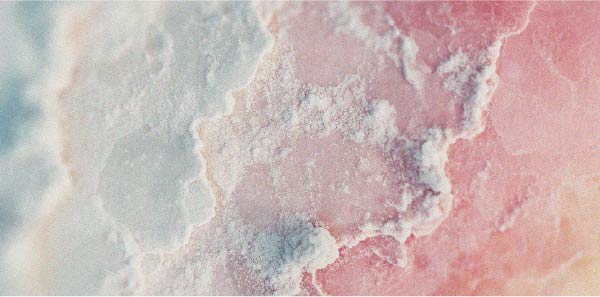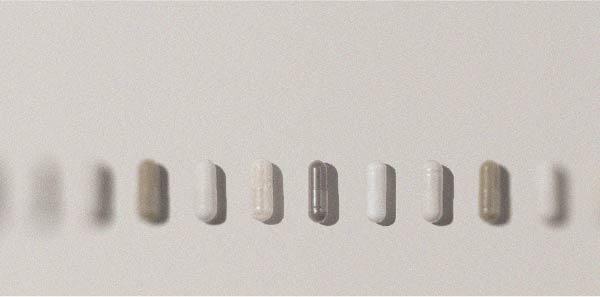Which supplements should vegetarians and vegans take?
Vegetarians and vegans are at risk of certain nutritional deficiencies. Discover which nutrients they could easily be missing out on and the key supplements they should be taking.

Vegetarianism, veganism: definitions and differences
With the increase in recent years in the number of diet options (paleo, raw-food, etc), it’s worth taking a moment to clarify some terms which often get misused or mixed up.
So:
- While on one level, a vegetarian diet can simply mean not eating meat, there are actually many different types of vegetarian diet. Most common in Europe is the ovo-lacto-vegetarian which excludes meat or fish, but retains eggs and dairy products. The pescatarian diet eliminates meat but includes fish and seafood (as well as eggs and dairy products);
- a vegan diet excludes all products of animal origin, including honey, for example;
- for some, veganism is not just a diet but a way of life. Strict ethical vegans exclude all animal-origin products not only from their diet but from their daily lives. They wear neither fur nor leather, eschew the use of animal-tested cosmetics, feather or down duvets, and products made using animal traction, and will not visit zoos/aquariums/circuses, etc. In other words, they reject all forms of animal exploitation (1).
Vegetarian and vegan diets
Irrespective of the type of diet, the most important thing (and this applies to omnivores too), is to ensure a varied and balanced intake of food!
And if this is slightly more of a challenge for vegetarians and vegans, it’s simply because plant protein sources are almost always sources of carbohydrates too, and even fats.
In addition, and most importantly, it’s necessary to consider not just protein intake but essential amino acid intake: to provide the body with all the amino acids it needs, it’s important to achieve a balance between pulses and grains (2).
To ensure an adequate intake of protein (between 0.8g/kg of bodyweight and 2g/kg of bodyweight for body-builders, for example) and essential amino acids, lacto- and ovo-vegetarians sometimes choose to take powdered whey protein (such as the product Undenatured Whey Protein Isolate), which contains all the essential amino acids and provides a significant amount of protein.
Also important is a high intake of raw fruits and vegetables (especially those rich in vitamin C to promote absorption of plant-source iron which is less well-absorbed than that from animal sources), wholegrains, various legumes and pulses (not just tofu), and spices: by varying your range of foods in this way, and including color and diversity in your meals, you should be able to give your body what it needs … to some extent, at least (3).
The fact is that, despite all these efforts, there are some nutrients that are difficult – if not impossible - to find in sufficient amounts in a vegan diet. Let's explain....
Vitamin D: essential for everyone, whatever their diet!
This is explored in detail in our article on vitamin D: according to doctors, scientists and health organisations, modern lifestyles in the West make it impossible to obtain enough vitamin D, whatever the diet.
So this applies to vegans, vegetarians, and omnivores alike: it’s advisable to take a vitamin D supplement, at least in autumn, winter and the beginning of spring (for example, the vegan vitamin D product Vegan D3) (4).
Vitamin B12: an essential supplement for vegetarians and vegans
There are many misconceptions surrounding the issue of vitamin B12 for vegans and vegetarians. So to clear up any confusion: no plant-source food can provide the body with the amount of vitamin B12 it needs, not even spirulina. Even though this algae does contain vitamin B12, it is not absorbed by the body (5-6).
Vitamin B12 is actually produced from the fermentation of plants by bacteria, for example, in the stomachs of ruminant animals. It is also produced in the stools of certain coprophage herbivores (such as rabbits which eat their own faeces in order to obtain nutrients not directly provided by their digestion) (7).
And since we human beings are not ruminants, we are unable to produce vitamin B12 by consuming plants.
That’s why vegetarians need to supplement with vitamin B12 (with, for example, the product Methylcobalamine). And to be suitable for vegans it must be produced from bacterial fermentation.
Note:
- the recommended daily intake for vitamin B12 is 2.5 micrograms, that’s 500g of cooked poultry, 200g of fromage frais, 50g of tuna, 15g of mackerel or 200g of eggs (8);
- contrary to a common misconception, lacto-fermentation is not thought to promote vitamin B12 synthesis on plant foods.
Iodine and low-salt diets
While almost all table salt available in Europe is enriched with iodine to prevent cretinism, vegetarians and vegans following a low-salt diet should watch their iodine intake.
Iodine supports normal energy metabolism, mental and nervous system function, thyroid hormone production and thyroid function, as well as normal skin, but can be lacking in a diet that’s too low in salt.
In such cases, iodine supplementation should be considered (with, for example, the product Potassium Iodide) (9).
Iron: for vegetarians and vegans with diagnosed deficiency
As mentioned, iron from plant sources, known as ‘non-haem iron’, is less bioavailable: in the region of 5% compared with 25% for haem iron, the kind obtained from meat (10).
However, plant-source iron can be made more bioavailable by eating a diet rich in vitamin C. In winter, this means regularly eating foods such as red cabbage and/or kiwi and/or lamb’s lettuce and/or spinach leaves, etc. It’s obviously easier in spring and summer when most seasonal fruits and vegetables contain significant amounts of vitamin C (11).
In the case of diagnosed anemia in vegetarians or vegans, it may therefore be wise, under medical supervision, to take an iron supplement, for example, Iron Bisglycinate).
Zinc and selenium supplements: if in doubt
Let’s now consider zinc and selenium deficiency. A diet that contains a lot of pulses and grains can lead to excess levels of phytate or phytic acid in the body (12).
Even though phytate is a powerful antioxidant and may help combat osteoporosis, it’s often also described as an ‘anti-nutrient’.
Abundant in pulses, grains and nuts (and all seeds, in fact), it’s thought to impair intestinal absorption of minerals and trace-elements (13).
In order to reduce intake of phytates when eating a diet rich in legumes, nuts and grains, it’s therefore strongly recommended to soak these foods in water for several hours and rinse them before cooking thoroughly.
If in doubt, or if you have symptoms of zinc and selenium deficiency, consider supplementing with zinc (such as with the product Zinc Orotate) and selenium (Selenium).
References
- MATHIEU, Sasha et DORARD, Géraldine. Végétarisme, végétalisme, véganisme: aspects motivationnels et psychologiques associés à l’alimentation sélective. La presse médicale, 2016, vol. 45, no 9, p. 726-733.
- MARIOTTI, François et GARDNER, Christopher D. Adéquation de l’apport en protéines et acides aminés dans les régimes végétariens. Cahiers de Nutrition et de Diététique, 2020, vol. 55, no 2, p. 66-81.
- MESSINA, Mark et MESSINA, Virginia. The dietitian's guide to vegetarian diets: issues and applications. Aspen, 1996.
- Rapport de l’Académie nationale de médecine. Statut vitaminique, rôle extra osseux et besoins quotidiens en vitamine D. Bull Acad Natle Med. 2012, 196, 1011.
- PAWLAK, Roman, PARROTT, Scott James, RAJ, Sudha, et al.How prevalent is vitamin B12 deficiency among vegetarians?. Nutrition reviews, 2013, vol. 71, no 2, p. 110-117.
- DAGNELIE, Pieter C., VAN STAVEREN, Wija A., et VAN DEN BERG, Henk. Vitamin B-12 from algae appears not to be bioavailable. The American journal of clinical nutrition, 1991, vol. 53, no 3, p. 695-697.
- ALLEN, Lindsay H. Vitamin B-12. Advances in Nutrition, 2012, vol. 3, no 1, p. 54-55.
- HUNT, Alesia, HARRINGTON, Dominic, et ROBINSON, Susan. Vitamin B12 deficiency. Bmj, 2014, vol. 349.
- DELANGE, Francois. Risks and benefits of iodine supplementation. The Lancet, 1998, vol. 351, no 9107, p. 923-924.
- HUNT, Janet R. Bioavailability of iron, zinc, and other trace minerals from vegetarian diets. The American journal of clinical nutrition, 2003, vol. 78, no 3, p. 633S-639S.
- MONSEN, Elaine R., et al.Iron nutrition and absorption: dietary factors which impact iron bioavailability. Journal of the American Dietetic Association, 1988, vol. 88, no 7, p. 786-790.
- DE BORTOLI, Maritsa Carla et COZZOLINO, Silvia Maria Franciscato. Zinc and selenium nutritional status in vegetarians. Biological trace element research, 2009, vol. 127, no 3, p. 228-233.
- REDDY, N. R., SATHE, S. K., et SALUNKHE, D. K. Phytates in legumes and cereals. Advances in food research, 1982, vol. 28, p. 1-92.
Keywords
14 Hours
great products and prices
great products and prices
Marie
6 Days
Easy to navigate site
Easy to navigate site, had what I was searching for, good price. easy order-check out
James Tucker
12 Days
My skin is clearing up nicely!
Pretty good for my skin so far.
Christian
14 Days
The new packaging is excellent
The new packaging is excellent - finally! No more squashed boxes and torn envelopes.
GORAN
15 Days
Great Product
Great Product
Larry Garrett
19 Days
Quick shipping
Quick shipping; good price. No issues!
Mary McCarty
21 Days
Thr product is very good and is helping…
Thr product is very good and is helping me on my health. Then is always on time
LUGO Luz
23 Days
Buying was fine
Buying was fine. I had problems with the website not recognizing my login info, and had to call to get it fixed. Other than that, everything was good.
David S. Clark
24 Days
Your super maca and super ginseng are…phenomenal
Your super maca and super ginseng are phenomenal supplements that compliment each other when taking them together. Fantastic feeling of well-being and lots of mid day energy without the crash.
Keith Mason
26 Days
I have had amazing results with every…
I have had amazing results with every supplement I've purchased. I am extremely satisfied with this company
kirstin Torres
26 Days
Fine products
Fine products . They are on the leading edge of online supplements. The only issue -so far-is they sometime run out of subscription items.
Jason Argos
29 Days
The ordering process is very user…
The ordering process is very user friendly and the products always come in a timely manner.
CARTER Rhonda
30 Days
The price for Dr
The price for Dr. Pero's AC-11 is reasonable and in line with his views. (my former colleague). Keep it pure.
CAMPBELL Clayton
33 Days
Right on every time.
Right on every time.
Arthur Nicholas
36 Days
They are cheaper than everyone else and…
They are cheaper than everyone else and the shipping was fast. Great company.
Patricia Adams




